This step by step diy woodworking project is about kitchen chair plans. This detailed article features through plans for building a beautiful wooden chair. Work with good judgement and don’t forget to take a look over the rest of the related plans, as there are many designs and woodworking projects to select from.
Work with attention and don’t forget that a good planning will save you from many issues and it will keep the costs withing the total budget. Invest in high quality materials, such as pine, redwood or cedar. Drill pocket holes before inserting the galvanized screws, to prevent the wood from splitting. Add waterproof glue to the joints, in order to enhance the rigidity of the structure. See all my Premium Plans HERE.
Projects made from these plans
Kitchen Chair Plans
Cut & Shopping Lists
- A – 2 pieces of 2×4 lumber – 36″ long BACK LEGS
- B – 2 pieces of 2×2 lumber – 17″ long FRONT LEGS
- C – 2 pieces of 1×3 lumber – 16” long, 2 pieces – 16 1/2″ long APRONS
- D – 1 piece of 3/4″ plywood – 19″x19 1/2″ long SEAT
- E – 1 piece of 1×8 lumber – 16″ long BACKREST
- 1 piece of 2×4 lumber – 6 ft
- 1 piece of 2×2 lumber – 4 ft
- 1 piece of 1×3 lumber – 8 ft
- 1 piece of 1×8 lumber – 2 ft
- 1 piece of 3/4″ plywood – 2’x2′
- 2 1/2″ screws
- 1 1/4″ screws
- wood putty, wood stain
Tools
![]() Hammer, Tape measure, Framing square, Level
Hammer, Tape measure, Framing square, Level
![]() Miter saw, Drill machinery, Screwdriver, Sander
Miter saw, Drill machinery, Screwdriver, Sander
Time
![]() One day
One day
Related
Building a kitchen chair
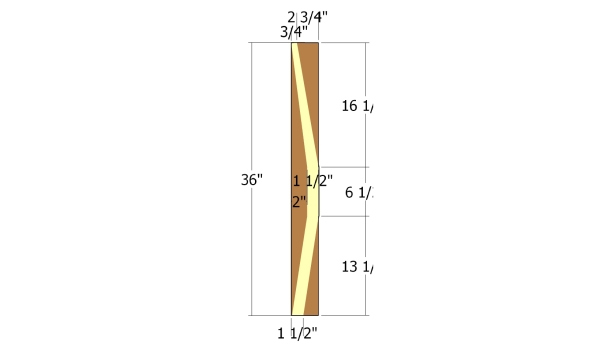
Building the back legs
The first step of the project is about building the back legs. As you can easily notice in the diagram, we recommend you to build the legs out of 2×4 lumber. Mark the cut lines on the slat with great attention and get the job done with a circular saw.
The blade of the saw should go over the cut lines. Get the job done by smoothing the edges with fine-grit sandpaper. Repeat the process for the other leg for the wood chair.

Front leg
The next step of the woodworking project is to build the front legs of the chair. As you can easily notice in the diagram, you need to build the legs out of 2×2 lumber. Mark the cut lines on the pieces of lumber and get the job done with a circular saw.
Smooth the cut edges with fine-grit sandpaper and remove the residues with a damp cloth. Repeat the process for the other front leg. Adjust the design of the leg to suit your needs and tastes.
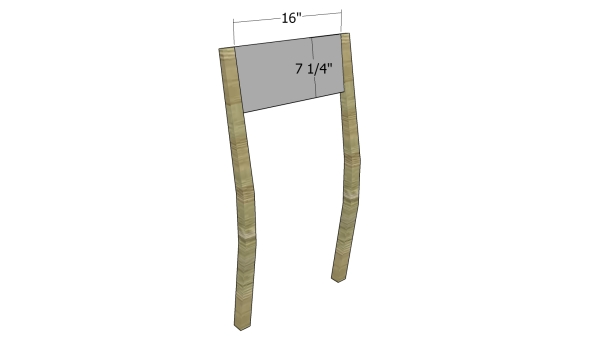
Fitting the backrest
Build the backrest out of 1×8 lumber. Drill pocket holes at both ends of the component and secure it to the legs using 1 1/4″ screws. Add glue to the joints and remove the excess using a damp cloth. Leave no gaps between the components.
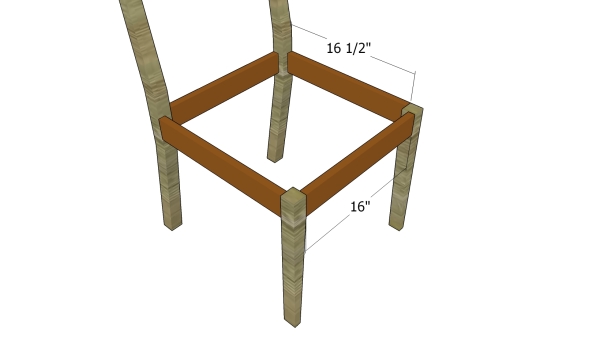
Building the frane of the chair
Assembling the frame of the chair is a straight-forward process, but you need to pay attention to details. Build the aprons out of 1×3 lumber, cutting the components at the right size.
Drill pocket holes at both ends of the aprons and secure them to the legs using 1 1/4′ screws. Make sure the corners are right-angled and leave no gaps between the components. Add glue to enhance the rigidity of the structure.
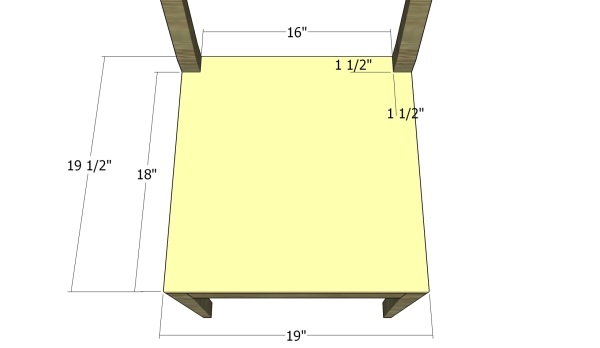
Attaching the seat
In order to get a professional result, we recommend you to build the seat out of 3/4″ plywood. Make the notches to the corners of the plywood seat and smooth the cut edges with fine-grit sandpaper. Drill pocket holes along the aprons and insert 1 1/4″ screws into the seat. Align the edges with great care.
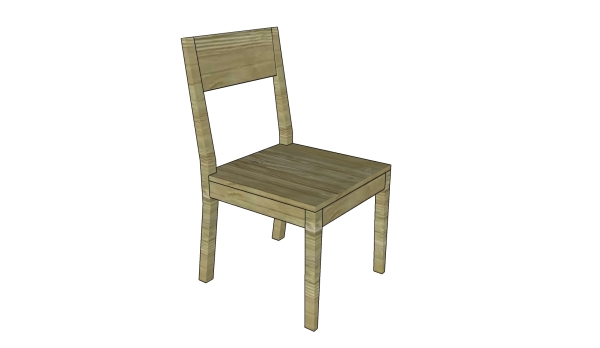
Kitchen chair plans
One of the last steps of the woodworking project is to take care of the finishing touches. Therefore, fill the pilot holes with wood putty and smooth the surface with 120-grit sandpaper.
Top Tip: If you want to enhance the look of the woodworking project and to protect the chair from decay, we recommend you to cover the components with paint or stain. Fit a nice cushion to the bed frame.
This woodworking project was about kitchen chair plans. If you want to see more outdoor plans, we recommend you to check out the rest of our step by step projects. LIKE us on Facebook and Google + to be the first that gets out latest projects and to hep us keep adding free woodworking plans for you.

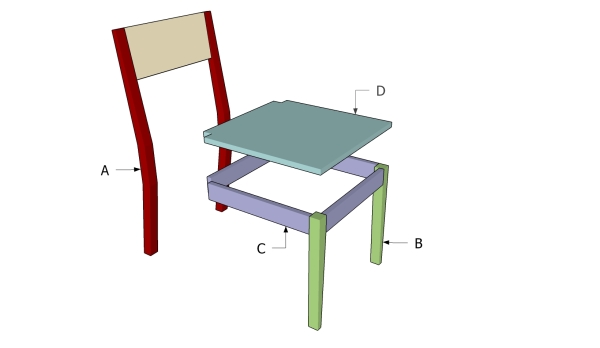




2 comments
Great chair, but I have one question: Is there a good alternative to using pocket holes to secure the backrest? I would like to stain the chair instead of paint it (to match my kitchen table) so I don’t think pocket holes would work very well in such a visible location. (I don’t care about the aprons; they’re hidden under the seat).
Yes, there are alternatives. You could use dowel pins or joiner biscuits.